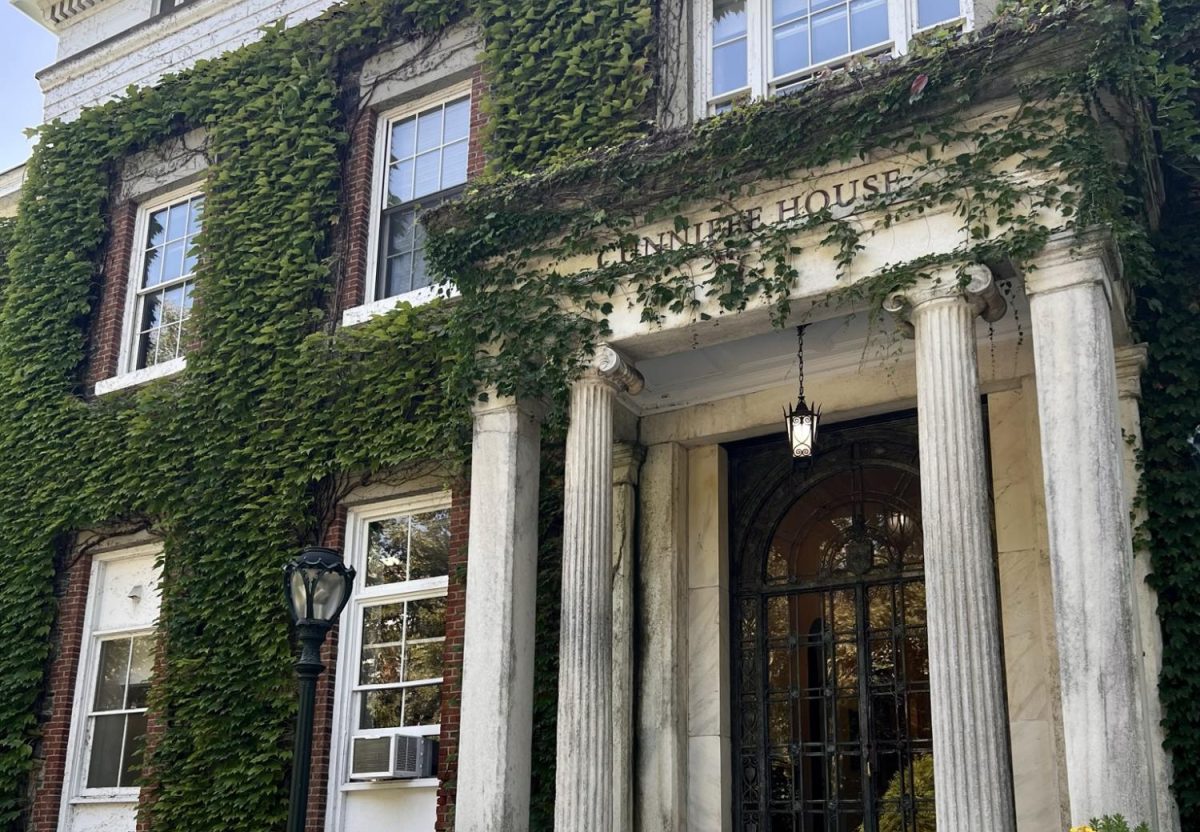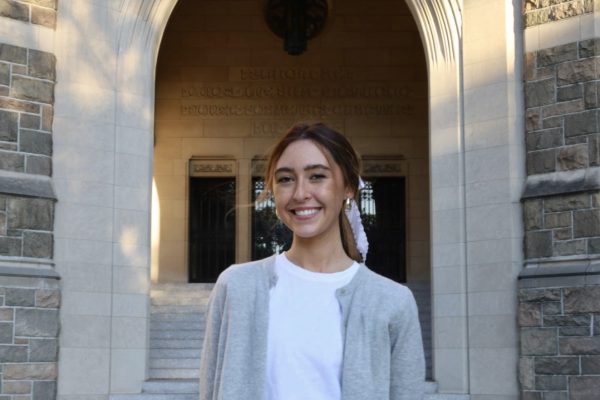The Office of the President and the FitzSimons Initiative hosted “Navigating Polarities: Ignatian Leadership in Action,” a workshop open to the University community on Thursday, Feb. 6. The event was held in Bepler Commons from 11:30 a.m. to 1 p.m.
Fr. David McCallum, S.J., is a leadership consultant to Pope Francis and the Executive Director of the Discerning Leadership Program, a “leadership formation for a Synodal Church.” At this workshop, Fr. McCallum presented “a method that helps us to be more discerning and engage more effectively with those who think differently.” The Discerning Leadership Program’s stated mission is “to support those invested with senior roles of authority and responsibility in the Church to develop their capacity as leaders, administrators, and managers for discerning and effective service to the Church.”
Based on the divided state of our world, the conversation emphasized the question, “How do we navigate beyond our current state, rediscover common ground, and co-create the futures we desire, rather than resign ourselves to the futures we fear?”
According to a statement from the office of President Tania Tetlow, “Ignatius of Loyola, the founder of the Jesuits, suggested that instead of reacting on the basis of fears, we can discern our way forward with more consciousness, compassion, and vision. Discernment demands the capacity to see reality in both/and terms, applying reason, feelings, and intuition in the service of the decisions we make.”
This thoughtful and engaging event fostered community and togetherness. It also required much preparation. When asked about the organization of the event, Dr. Vanessa Rotondo, deputy chief of staff and triple alumna of Fordham University said, “I have known Fr. David McCallum, S.J., for a few years and have brought groups of students over to Rome to offer Ignatian leadership formation through lenses of Ignatian discernment. We brought him to New York for some other projects, and it was so gracious of him to be open to sharing his gifts and talents with Fordham in this way.”
Bepler Commons was full of students, faculty and staff sitting amongst one another at round tables.
“I loved the program’s content, but the breaking down of ‘roles’ and the authentic encounter of humanity in the room stood out most to me. Rather than students dialoguing with students, faculty with faculty, we had dialogue happening across the board— it was a beautiful sight to witness the modeling and shared experiences being realized,” said Rotondo.
“When we talk about leadership, we often think about skills. In the Discerning Leadership Program, we begin not only with skills, but with the person we are, the character, and the values that are important to us, and the spirit with which we lead. Then we build on that sense of being with the knowledge and the know-how to be able to lead effectively,” said McCallum.
“Ignatian leadership is about truly knowing the people, places and spaces around you—and then offering your gifts in service of the mission. It’s leadership rooted in awareness, action, and a commitment to something greater than yourself in service of others,” said Rotondo.
President of Fordham Alpha Sigma Nu, Daniel Melia, FCRH ’25, was also in attendance. Alpha Sigma Nu (ASN) is the honor society of Jesuit colleges.
“To me, ‘Ignatian Leadership’ starts and ends with a question: How is what I am doing as a leader, and what we are doing as a team, in service of the greater glory of God? I have tried to design every event at ASN to be informed by this higher principle — if they weren’t so designed, I don’t think they’d be very Ignatian. The AMDG slogan has to be taken seriously at all times for something to qualify as Ignatian Leadership,” said Melia.
This event was an opportunity for all members of the community to come together and learn.
“Navigating polarities and having authentic and respectful dialogue across ideological differences is essential, especially as we become increasingly more globally polarized. Our Jesuit mission invites us to be intellectually rooted agents of change in the world who go out and make a difference — we need to form and model that well for our staff, faculty, and students and offer them the resources to be formed in that vision while they are here,” said Rotondo.









































































































































































































